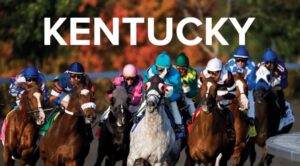Key Moments:
- Regulators have encountered intensified challenges due to rapid technological advances and a shifting threat landscape within the gaming sector.
- NAGRA has expanded collaboration and educational resources as it aims to modernize regulatory frameworks and increase cross-jurisdictional cooperation.
- Ongoing developments regarding sweepstakes casinos have prompted a push for consistent regulatory approaches and information sharing among North American regulators.
Regulatory Challenges in a Shifting Gaming Environment
The landscape of gaming in North America is evolving at an unprecedented pace, shaped by technological developments and a surge in igaming. Regulatory agencies are under substantial pressure to transition from traditional oversight models to adaptive systems that address emerging risks and integrity threats. The proliferation of digital gaming has dramatically altered regulators’ roles, testing the limits of compliance infrastructure. Agencies must evolve to handle risks that have not previously been encountered.
Additionally, the sector faces a significant workforce transition, with the retirement of experienced staff presenting a loss of institutional memory. On the other hand, this development offers an opportunity to strengthen regulatory teams with modern skills essential for a digital-first regulatory environment. Simultaneously, regulators must contend with bad actors employing advanced technologies, creating a cycle where new threats arise as soon as existing ones are addressed.
According to Jeremy Locke, president of the North American Gaming Regulators Association (NAGRA): “The spread of gambling products outside of traditional casino walls through the incorporation of digital gaming offerings has fundamentally changed the way regulators provide oversight.”
Locke emphasizes that this period demands that regulators actively lead the industry forward with investments in technology and talent, rather than merely responding to challenges as they occur.
Jeremy Locke, the new president of the North American Gaming Regulators Association (NAGRA), has called for greater co-operation with European regulatory bodies to improve sector integrity.
— iGB (@iGamingBusiness) August 11, 2025
Progress and Priorities in North American Gaming Regulation
In recent times, regulatory bodies across the continent have achieved meaningful progress by enhancing cooperation and building responsive regulatory structures. Organizations such as NAGRA have played a pivotal role in sharing information and driving coordinated responses to new challenges, particularly as igaming grows.
Jurisdictions have taken substantial steps toward enabling regulated igaming and sports betting, though legal and legislative adjustments often lag behind sector demands. Despite these hurdles, several regions have moved swiftly to combat unregulated gaming sites and have laid the groundwork for regulated online gaming markets.
Locke encourages adoption of best practices and joint approaches to regulatory issues, stating that this strategy enables efficiency as many operators function across multiple jurisdictions. Sharing knowledge and harmonizing approaches can offer consistent expectations and reduce redundant efforts among regulators.
Collaboration and Information Sharing Across Borders
With global betting markets featuring events from around the world, coordination among regulators has become essential. Locke highlights the necessity for mechanisms that facilitate rapid information exchange, crucial for detecting and addressing irregularities swiftly to uphold the integrity of both sporting events and gaming products.
This interconnected environment requires modern regulatory frameworks that champion proactive information sharing, supported by partnerships spearheaded by organizations like NAGRA and the International Association of Gaming Regulators (IAGR). Locke explains, “Given the global nature of today’s gaming market, jurisdictions should look beyond their own borders and actively cultivate strategic partnerships.”
The collaborative nature of the regulatory community is crucial to its resilience, and engagement with industry groups is encouraged at any stage—regardless of an agency’s history or size.
Sweepstakes Casinos and Regulatory Responses
Sweepstakes casinos have emerged as a contentious topic, prompting debates over consumer protection and regulatory clarity. Locke identifies these as innovative business models that blur the boundaries of regulated gaming, sometimes operating in potential legal grey areas within various jurisdictions.
Locke notes, “I’m a firm believer in the positive effects of attention, regulation and compliance to promote the overall health of an industry.” He categorizes sweepstakes models as forms of otherwise regulated gaming presented under a different guise and underscores the importance of understanding and managing these offerings within applicable legal frameworks.
NAGRA positions itself as a critical resource for sharing insights on differing legal strategies and legislative outcomes among jurisdictions grappling with sweepstakes issues. The emphasis remains on information sharing and leveraging the experiences of partners, even when regulatory paths diverge.
NAGRA’s Upcoming Strategic Focus
NAGRA has evolved into a central platform for regulatory professionals in North America, facilitating knowledge exchange and strengthening alliances across multiple jurisdictions. Under Locke’s leadership, the organization is set to prioritize international and domestic cooperation through participation in major industry events hosted by groups such as the Canadian Association of Gaming Regulatory Agencies (CAGRA) and IAGR.
As the sector adapts to ongoing transformation, NAGRA’s immediate priorities include the development of a refreshed strategic plan and clearly defined objectives, ensuring the association remains positioned to address its members’ evolving requirements.
Summary Table: Core Regulatory Themes
| Area of Focus | Description |
|---|---|
| Technological Adaptation | Modernizing oversight and compliance systems to handle evolving threats in digital gaming. |
| Cross-Jurisdiction Collaboration | Expanding international partnerships and sharing best practices for regulatory consistency. |
| Sweepstakes Casino Regulation | Developing strategies to address new business models and unclear regulatory categories. |
| Workforce Evolution | Building teams with skills tailored to a digital-first compliance environment. |
| Strategic Planning | Formulating new organizational goals to guide adaptation during industry change. |
- Author


